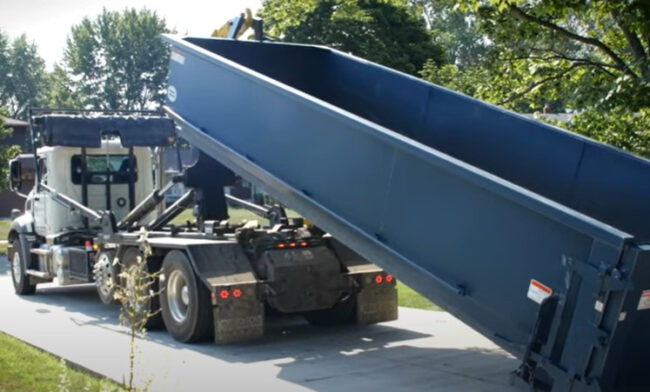Balancing Efficiency and Compliance: Strategies for Managing Waste Duration in Dumpster Rentals
The duration for which waste can stay in dumpster rentals varies depending on several factors, ranging from the type of waste being disposed of to the terms of the dumpster rental agreement. Unlike municipal waste collection services that operate on set schedules, dumpster rental offers greater flexibility in terms of disposal timelines, allowing businesses and homeowners to customize their waste management strategies according to their needs.
One significant factor influencing the duration of waste in dumpster rentals is the type and volume of waste being generated. For projects with high waste generation rates, such as construction or renovation endeavors, dumpsters may need to be emptied and replaced more frequently to accommodate the accumulation of debris. Conversely, smaller-scale projects or routine household cleanouts may require less frequent waste removal, allowing waste to remain in dumpsters for longer periods.
Additionally, the terms of the rental agreement dictate the duration for which dumpster rentals can be utilized. Rental periods typically range from a few days to several weeks, with the option to extend or shorten the rental duration as needed. By communicating their disposal timelines and project schedules to the rental provider, businesses and homeowners can ensure that dumpster rentals are aligned with their operational needs and budget constraints.
Furthermore, local regulations and permit requirements may impose limitations on the duration for which waste can stay in dumpster rentals. Municipalities often have ordinances governing the placement and duration of dumpsters on residential or commercial properties, with restrictions on how long dumpsters can remain in certain areas. By adhering to these regulations and obtaining necessary permits, renters can avoid potential fines or penalties associated with non-compliance.

In managing waste duration in dumpster rentals, striking a balance between efficiency and compliance is essential. While extending the duration of dumpster rentals can enhance operational flexibility and minimize disruptions, it is crucial to ensure compliance with local regulations and environmental standards to avoid potential legal liabilities.
One strategy for optimizing waste duration in dumpster rentals is to implement efficient waste management practices that minimize unnecessary waste accumulation. By establishing clear protocols for waste segregation, recycling, and disposal, businesses and homeowners can reduce the volume of waste requiring disposal and extend the duration between dumpster pickups. This proactive approach not only streamlines waste management operations but also promotes environmental responsibility by maximizing resource recovery and minimizing landfill contributions.
Additionally, regular communication and coordination with waste management providers are essential for managing waste duration effectively. By staying in touch with rental providers and providing updates on project timelines and waste volumes, renters can ensure that dumpsters are serviced in a timely manner to prevent overflow or excessive accumulation. This collaborative approach fosters transparency and accountability in waste management practices, enabling renters to maintain compliance with rental agreements and regulatory requirements.
Moreover, periodic assessments of waste generation patterns and project timelines can help renters optimize waste duration in dumpster rentals. By monitoring waste volumes and adjusting rental durations accordingly, businesses and homeowners can avoid overpaying for unused dumpster capacity or incurring additional fees for extended rental periods. This data-driven approach allows renters to maximize the efficiency of dumpster rentals while minimizing costs and environmental impact.